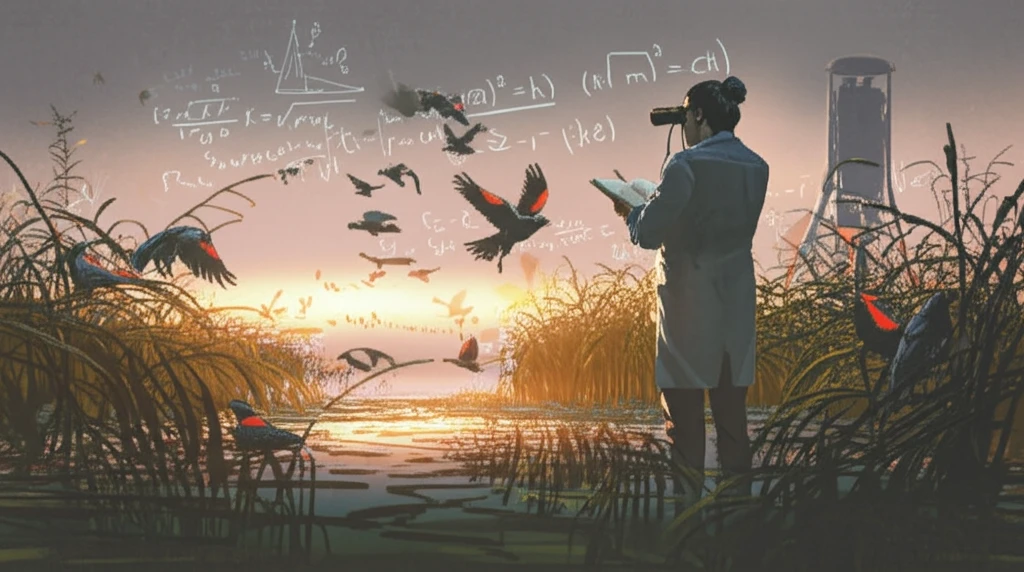
Decoding Animal Behavior: How to Study the Wild Kingdom
"From lab experiments to field observations, explore the fascinating world of animal behavior research and how scientists uncover the secrets of the animal kingdom."
For anyone fascinated by the animal kingdom, the driving question is always: Why do animals do what they do? The quest to understand animal behavior is a rewarding journey, starting with simple questions and evolving into detailed investigations. These investigations are often influenced by previous observations, raising even more complex questions and potential answers.
Take the red-winged blackbird, for example. It has been studied extensively, with early research focusing on how males defend their territories. Observations revealed that males keep other males out of specific nesting areas, leading to questions about the methods they use to protect their space.
This leads to the next crucial step: proposing potential answers, known as working hypotheses. Through background reading and preliminary observations, two possible explanations emerge such as the birds singing, or their striking red and yellow epaulets.
How Do Scientists Formulate Hypotheses About Animal Behavior?

The key is that each potential answer generates predictions that can be tested, forming the basis of a scientific hypothesis. Scientists then conduct studies to see if the results align with those predictions. This process, called hypothesis testing, often involves using multiple working hypotheses simultaneously.
- If red-winged blackbird song defends territory, then males should sing when on their territory and not when away from it. Males unable to sing should struggle to hold their territories.
- If red-winged blackbird epaulets defend territory, then males should display them when on their territory and not when away. Males lacking epaulets should struggle to hold their territories.
Why Understanding the 'Why' Matters
The study of animal behavior ultimately boils down to explaining why animals do what they do. The methods that are used produces valuable insights, there remains a vast amount that is either poorly understood or completely unknown. For those who find animal behavior fascinating, the most important point is that there are still many questions that needs answers.
